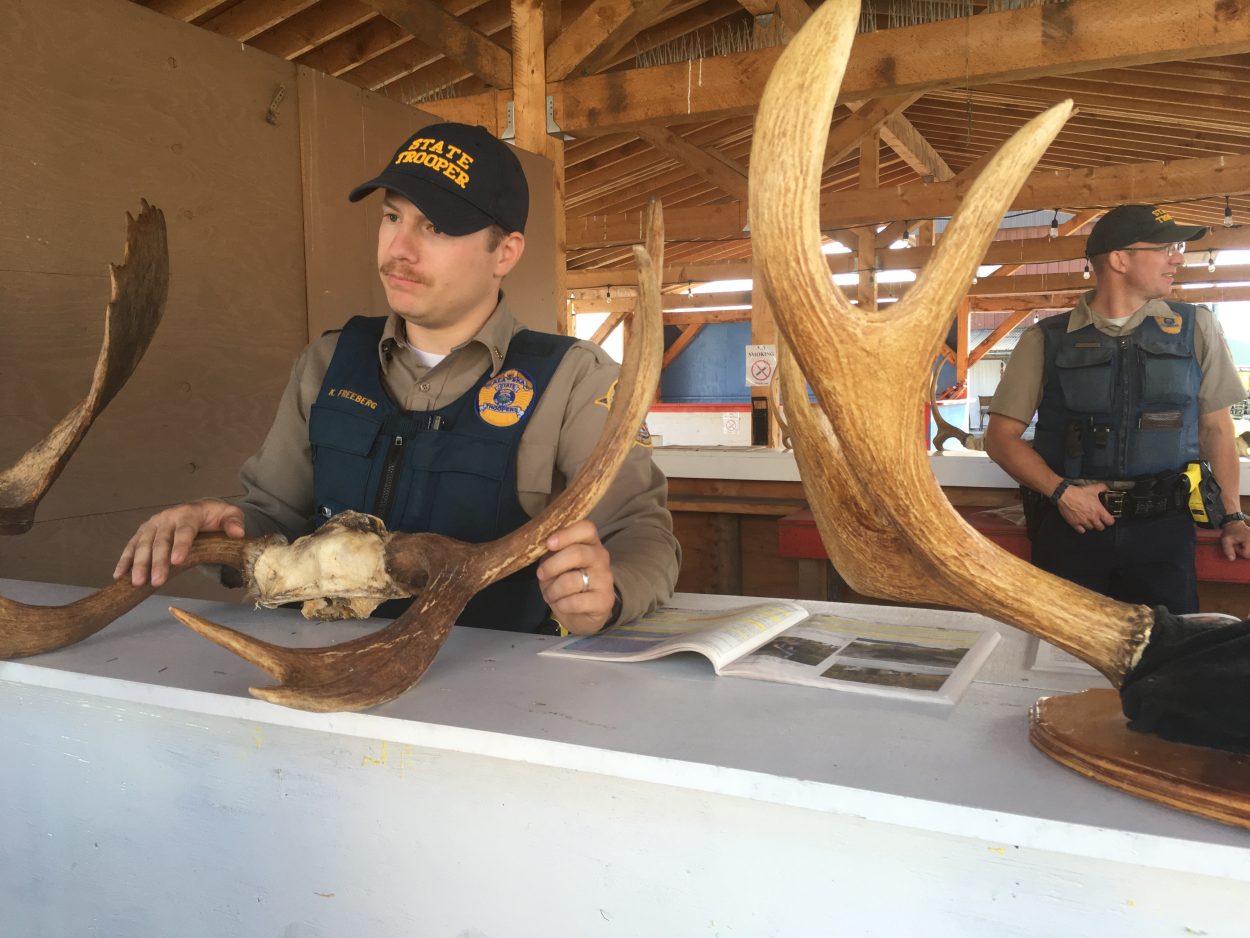
Some more adventurous hunters in Southeast Alaska are anticipating the start of moose season this month. Some will nab their prized bull, others won’t. A little over eight percent of the moose killed in this area each year don’t meet the state’s strict requirements for antler size or configuration. Wildlife troopers and communities throughout Alaska obtain these illegal moose to feed those who aren’t able to hunt. As KSTK’s June Leffler reports, sportsmen and charities in Wrangell are teaming up to improve on that process.
At a meeting of the local Fish and Game Advisory Council, a group was selected to streamline a certain protocol: How to take moose confiscated by local wildlife troopers and distribute that meat to needy folks in town.
“It’s probably the best thing I’ve heard all week,” said Mike Bates, who runs the local Salvation Army, which is known for its food bank. He’ll serve on the committee of five.
“It’s exciting to see the community pulling together for other people because there are people that have great need in the community,” Bates said.
Throughout the meeting, attendees said they wanted to “feed the needy, not the greedy.” But it’s clear, the needy include a myriad of different groups and individuals.
There’s already a process for this in place. It’s essentially a list that the trooper goes to when a moose comes in.
Chris Guggenbickler chairs the local advisory council. He doesn’t doubt that people on the list are deserving. He’s questioning if the means of distribution can actually meet their needs.
“I know there were people that have been on that list for ten years and then got a random call one day that there’s a moose hanging from the hoist,” he said.
Guggenbickler says very few people can process a moose on their own. Especially some folks on the list, like elders.
“They were certainly deserving but the program wasn’t working because of that reason,” he said.
So, the advisory council and the Stikine Sportsmen, a guys-only fundraising group, took up the issue. Just this year, Wrangell got its own wildlife trooper, so he’s helping out too.
Folks won’t randomly receive unprocessed moose anymore. Modeling the process on Petersburg’s “burger bank”, it looks like this. When a hunter is charged with killing an illegal moose, the hunter agrees to pay $300 and forfeit the meat. That money will go to pay a local butcher to process the animal.
What isn’t in stone, is who will actually get the roughly 500 pounds of meat a single moose renders. That’s where the committee comes in. They’ll distribute that food to low-income families, seniors and Alaska Natives in the community.
Last year, 11 illegal moose were confiscated in the Petersburg, Wrangell and Kake area. The month-long season in the area starts September 15th.











